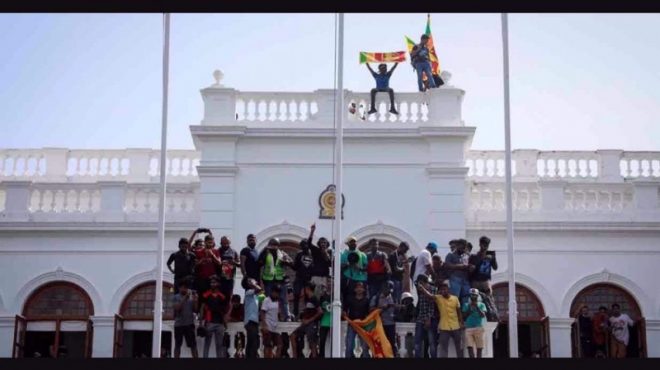Sri Lanka’s parliament convened on Saturday to begin the process of electing a new president, as a shipment of fuel arrived to provide some relief to the crisis-stricken country.
This comes after former president Gotabaya Rajapaksa’s resignation was accepted by parliament on Friday. Rajapaksa had fled to Singapore via the Maldives to escape anti-government protesters who had occupied his official residence and offices.
On Saturday, over 100 police and armed security forces equipped with water cannons and barriers were deployed to roads leading to the parliament building in case of any protests.
Parliament’s secretary general, Dhammika Dasanayake, said during a brief session on Saturday that nominations for the election of the new president would be heard on Tuesday and if there was more than one candidate, the lawmakers would vote on Wednesday.
Dasanayake also read the former president’s resignation letter out loud in parliament. In the letter, Rajapaksa said that he resigned because of the people’s requests.
He also mentioned in this letter that when he took power in 2019, Sri Lanka was involved in an economic crisis, but the global conditions, including the severe restrictions of Corona, aggravated the economic problems in the country.
In the meantime, Prime Minister Ranil Wickremesinghe was sworn in as the acting president. Under Sri Lanka’s constitution, Wickremesinghe — whose departure is also being demanded by protesters — will serve as the acting president until parliament chooses Rajapaksa’s successor for the rest of his term.
Sri Lanka receives first of three fuel shipments
Sri Lanka received the first of three fuel shipments on Saturday, said Energy Minister Kanchana Wijesekera.
These were the first shipments to reach the country in about three weeks. A second diesel consignment would also arrive on Saturday, with a shipment of petrol due by Tuesday.
“Payments completed for all 3,” the minister said in a tweet.
The island of 22 million people is struggling with its worst economic crisis since independence in 1948 amid a severe foreign exchange shortage that has limited essential imports of fuel, food, and medicine.
Soaring inflation, at a record 54.6 percent in June and expected to hit 70 percent in the coming months, has heaped hardship on the
population.
 Alghadeer TV Alghadeer TV
Alghadeer TV Alghadeer TV

